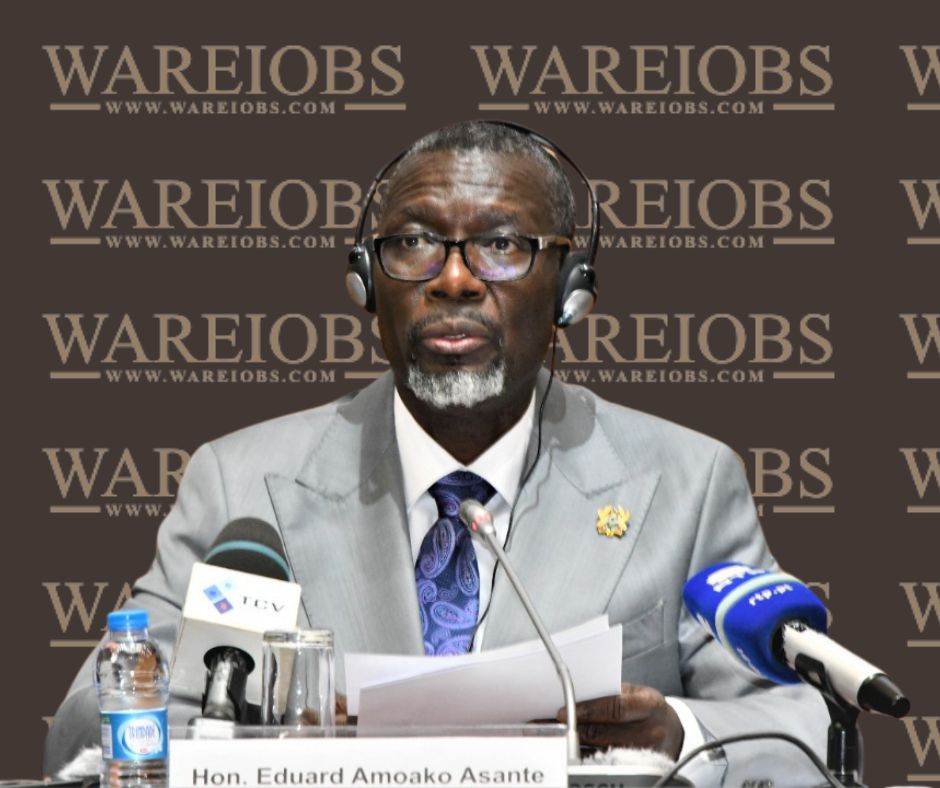25 February 2022 | 10:36 am
President of the ECOWAS Court, Justice Edward Asante has advocated for the harmonization of the judicial systems of Member States in order to attain a Community legal regime that supports the region’s integration objectives.
Asante made this known while making a presentation at a judicial forum for judges, magistrates and officials of the Kwara state judiciary in Ilorin during the Court’s ongoing week-long sensitization campaign in the state.
The Communications Department of the ECOWAS Court disclosed this in a statement made available to the News Agency of Nigeria (NAN) on Friday in Abuja.
Asante in the presentation delivered by Justice Dupe Atoki said harmonization of the ECOWAS judicial system can be achieved through the alignment of the legal texts of the Community with those of the States.
Asante stressed that the relationship between the ECOWAS and national courts as ‘a crucial element in the integration process of ECOWAS.’
“It is therefore of utmost importance that Member States of ECOWAS domesticate the ECOWAS Revised Treaty and the Protocols and Supplementary Acts of the Community.
“It is also imperative, to deepen the relationship between the judges of the ECOWAS Court of Justice and the national courts of ECOWAS Member States,” Asante said.
Asante stated that with the international character of the ECOWAS Court and its long held position, it is neither in competition with national courts nor an appellate court over its decisions.
He explained that the ECOWAS Court and National Courts play complementary roles in the dispensation of justice and the integration of the region.
“In a long chain of decisions, the ECOWAS Court of Justice has consistently held that it is not an appellate Court over national Courts of Member States.
“And has maintained that it has no jurisdiction to make any declaration on the Judgments of national courts, except where the national Courts or parties refer issues of interpretation of Community texts.”
He stated that the ECOWAS Court only that the national courts have the obligation to implement the decisions of the Court.
The President identified the possible areas of conflict between the regional and national courts to include their co-location within the same geographical space; their concurrent human rights jurisdiction.
Other areas of conflict to include “the lack of requirement for the exhaustion of local remedies before the ECOWAS court which could result in forum shopping.
“The failure by Member States to domesticate the Revised Treaty of 1993 and the Protocol on the Court in accordance with their treaty obligations.
“Failure by Member States to comply with or enforce the Judgments of the Court; the gaps in the ECOWAS legal texts.
“And the municipal laws of Member States leading to the failure to clearly define the relationship between both courts.
Chief Judge of Kwara, Justice Sulyman Kawu praised the thoughtfulness of the regional court in organizing the campaign.
Kawu said the sensitisation will not only create greater awareness of the Court among the citizens but open the door for more legal practitioners from the state to ‘ply their trade before the court’ and widen their scope of the law.
He reminded those with judicial powers of the ‘enormous and far reaching powers they exercise over our fellow men and women.
This he said requires legal practitioners to exhibit good character, reputation, diligence, hard work, honesty, integrity, sound knowledge of the law and consistent adherence to professional ethics.
Source: Guardian Nigeria
